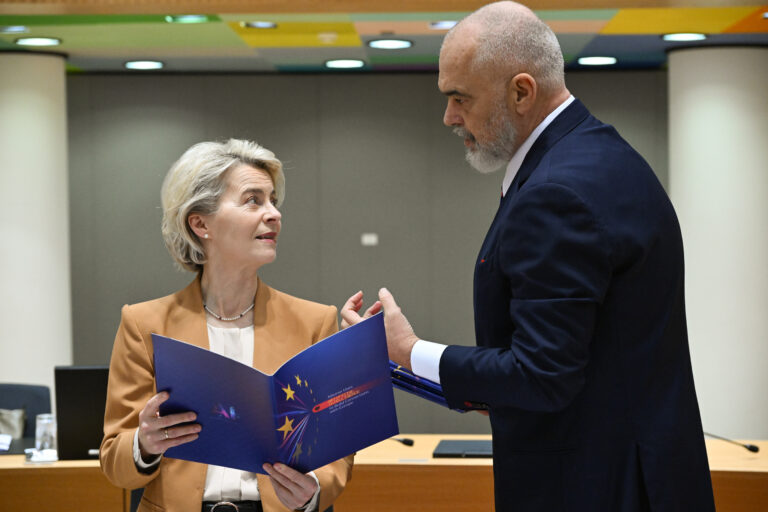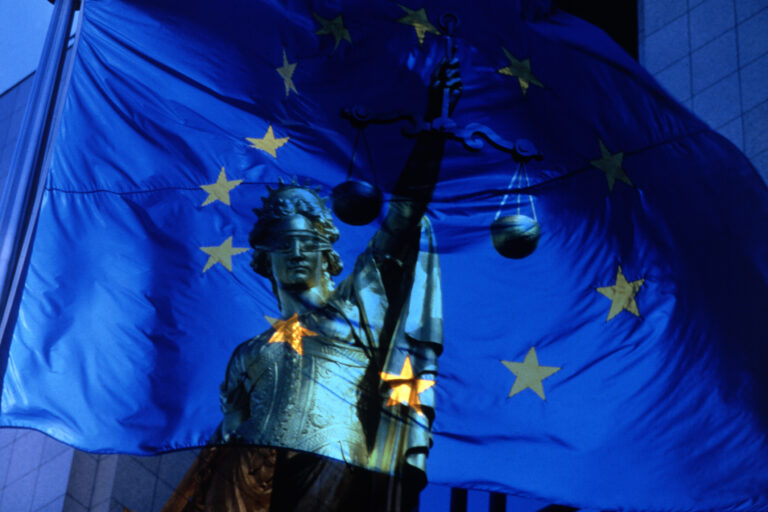For over two weeks, the streets of Tbilisi have been engulfed by protests against the “foreign agents” bill, which passed its second of three readings in parliament on 1 May. The legislation would require media and non-governmental organisations and other non-profits to register as “pursuing the interests of a foreign power” if they receive more than 20 per cent of their funding from abroad. This comes as oligarch and founder of the ruling Georgian Dream party, Bidzina Ivanishvili, recently accused the West of trying to undermine Georgia’s autonomy. Inspired by similar Kremlin legislation, the bill is straight out of the Russian handbook.
This marks a critical juncture for Georgia, which is torn between the government’s ambiguous ties to Moscow and the oppositions’ EU aspirations, backed by wide public support. Recent developments risk tipping the balance towards Russia: restricting foreign organisations would be extremely damaging to Georgia’s case for accession – especially for the rule of law and media freedom acquis. This comes at a time when, in the face of Russian aggression, enlargement is a geopolitical necessity for both the European Union and Georgia – which was granted candidate status in December.
Striking a balance
EU officials have expressed concern over recent developments, urging the government to respect Georgians’ desire for democracy. They should now send a clear warning on the consequences of Georgian Dream’s infringements on democratic freedoms – including the “foreign agent” bill – and its current course of sending opportunistic signals hoping to please both Moscow and Brussels. The EU should be ready to suspend some funding assistance to the Georgian government for as long as it is willing to jeopardise the country’s accession and state institutions are captured by oligarch interests. Brussels should emphasise this is a temporary measure that will remain while the “foreign agents” bill is in place. This should also apply to other anti-democratic legislation making its way through Georgia’s parliament.
At the same time, the EU should help maintain the momentum of Georgia’s EU aspirations now and at the country’s parliamentary election in October. To do so, the EU should increase its capacity-building support for independent media, civil society, and youth organisations. In the lead up to the election, the EU must emphasise to Georgians that it will tangibly support the country’s accession related reforms if and when the Georgian government does. And to keep this European dream alive long after the election, the EU must remain focused on supporting Georgia’s accession – if the government does – to prove that enlargement is not just an empty word used for political leverage.
A political tightrope
The Georgian parliament’s third and final vote on the bill will likely take place later this month. Although Georgia’s president Salome Zourabichvili has vowed to veto the law, the ruling party Georgian Dream has enough votes in parliament to override the presidential veto and pass the bill. For Georgia Dream, the legislation will be a tool to bolster their chances at securing a strong majority in the upcoming parliamentary election. European complacency over these anti-democratic reforms will only strengthen their chances against a deeply divided opposition and could sabotage the enlargement project at a critical moment.
This paper was first published in European Council on Foreign Relations on 7 May 2024.



